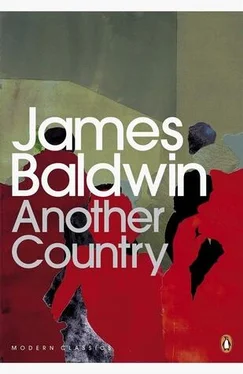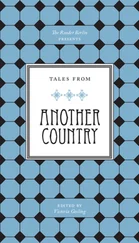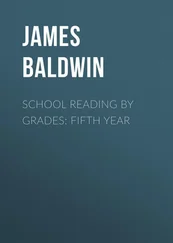They started walking uptown, and east, as though each wished to get as far away as possible from the world they knew and their responsibilities in it. The presence of others, walking past them, walking toward them, erupting rudely out of doorways and taxicabs, and springing up from the curbs, intruded painfully on their stillness and seemed to menace their connection. And each man or woman that passed seemed also to be carrying some intolerable burden; their private lives screamed from their hot and discontented faces.
“On days like this,” Cass said, suddenly, “I remember what it was like — I think I remember — to be young, very young.” She looked up at him. “When everything, touching and tasting — everything — was so new, and even suffering was wonderful because it was so complete.”
“That’s hindsight, Cass. I wouldn’t want to be that young again for anything on earth.”
But he knew what she meant. Her words had taken his mind away — for a moment — from his cruel visions of Ida and Ellis. (“You told me you hadn’t seen him since that party.” “Well. I did go to see him once, just to tell him about the jam session.” “Why did you have to see him, why didn’t you just call?” “I wasn’t sure he’d remember me from just over the phone. And then I didn’t tell you because I knew how you’d behave.” “I don’t care what you say, baby, I know what he’s after, he just wants to get inside your drawers.” “Oh, Vivaldo. You think I don’t know how to handle little snots like that?” And she gave him a look, which he did not know how to answer, which almost stated Look how I handled you .)
But now he thought of himself at fifteen or sixteen — swimming in the Coney Island surf, or in the pool in his neighborhood; playing handball in the playground, sometimes with his father; lying in the gutter after a street fight, vomiting, praying that no enemy would take this occasion to kick his brains in. He remembered the fear of those days, fear of everything, covered with a mocking, staccato style, defended with the bullets of dirty words. Everything was for the first time; at fifteen or sixteen; and what was her name? Zelda. Could that possibly be right? On the roof, in the summertime, under the dirty city stars.
All for the first time, in the days when acts had no consequences and nothing was irrecoverable, and love was simple and even pain had the dignity of enduring forever: it was unimaginable that time could do anything to diminish it. Where was Zelda now? She might easily have been transformed into the matron with fleshy, spreading buttocks and metallically unlikely blonde hair who teetered on high heels just before them now. She, too, somewhere, some day, had looked on and touched everything for the first time and felt the summer air on her breasts like a blessing and been entered and had the blood run out, for the first time.
And what was Cass thinking?
“Oh, no,” she said, slowly, “I certainly don’t mean that I want to be that miserable girl again. I was just remembering how different it was then — how different from now.”
He put one arm around her thin shoulders. “You sound sad, Cass. Tell me what’s the matter.”
He guided her into a dark, cool cocktail lounge. The waiter led them to a small table for two, took their orders, and disappeared. Cass looked down at the tabletop and played with the salted peanuts in the red plastic dish.
“Well, that’s why I called you — to talk to you. But it’s not so easy. I’m not sure I know what’s the matter.” The waiter returned and set their drinks down before them. “That’s not true. I guess I do know what’s the matter.”
Then she was silent. She sipped her drink nervously and lit a cigarette.
“I guess it’s about Richard and me,” she said at last. “I don’t know what’s going to become of us. There doesn’t seem to be anything between us any more.” She spoke in an odd, breathless way, almost like a schoolgirl, and as though she did not believe what she was saying. “Or I guess that’s not right. There’s a hell of a lot between us, there must be. But none of it seems to work. Sometimes — sometimes I think he hates me — for being married, for the children, for the work he does. And other times I know that isn’t true, that can’t be true.” She bit her lower lip and stubbed out her cigarette and tried to laugh. “Poor Vivaldo. I know you’ve got troubles of your own and don’t know what to do about the maunderings of a middle-aged, self-centered matron.”
“Now that you mention it,” he said, “I guess you are practically decrepit.” He tried to smile; he did not know what to say. Ida and Ellis, thrust hastily to the back of his mind, were, nevertheless, dimly accomplishing their unspeakable violations of his manhood. “It really just sounds like a kind of summer storm — don’t all married people have them?”
“I really don’t know anything about all married people. I’m not sure I know anything about marriage.” She sipped her drink again, saying, irrelevantly, “I wish I could get drunk.” Then she giggled, her proud face suddenly breaking. “I wish I could get drunk and go out and pick up a truck driver or a taxi driver or anybody who’d touch me and make me feel like a woman again.” She hid her face with one bony hand and her tears dripped through her fingers. Keeping her head down, she searched fiercely through the absurd straw handbag and finally came up with a small bit of Kleenex. With this, miraculously, she managed to blow her nose and dry her eyes. “I’m sorry,” she said, “I’ve just been sitting around brooding too long.”
“What have you been brooding about, Cass? I thought you and Richard had it made.” These words sounded, in his own ears, stiff and uncaring. But he had known Cass and Richard too long and been too young when he met them; he had never really thought of Cass and Richard as lovers. Sometimes, of course, he had watched Cass move, realizing that, small as she was, she was all woman and all there, had good legs and nice breasts and knew how to twist her small behind; and, sometimes, watching Richard’s great paw on her wrist, wondered how she bore his weight. But he had the tendency of all wildly disorganized people to suppose that the lives of others were tamer and less sensual and more cerebral than his own. And for the very first time he had the sense of Cass as a passionate woman who had merely been carrying on a legal love affair; who writhed as beautifully and shamelessly in Richard’s arms as the women Vivaldo had dreamed about for all these years. “I guess,” he added, “I must sound pretty dumb. Forgive me.”
She smiled — smiled as though she had read his thoughts. “No, you don’t. Perhaps I also thought we had it made. But nobody ever has it made.” She lit another cigarette, straightening her shoulders, slowly circling, as she had for many weeks now, around some awful decision. “I keep telling myself it’s because of the way our lives have changed, now that Richard’s becoming so well known. But it isn’t that. It’s something that’s been there all along.” Now she was very grave and dry. She looked at Vivaldo through the smoke of her cigarette, narrowing her eyes. “You know, I used to look at you and all your horrible adventures and compare you to Richard and me and think how lucky we were. He was the first”—she faltered and looked down—“the very first man I ever had, and I was the first for him, too— really the first, the first girl, anyway, he ever loved .”
And she looked down again, as though the burden of confession were too great. Yet they were united in the knowledge that what she had begun she must now finish.
Читать дальше












